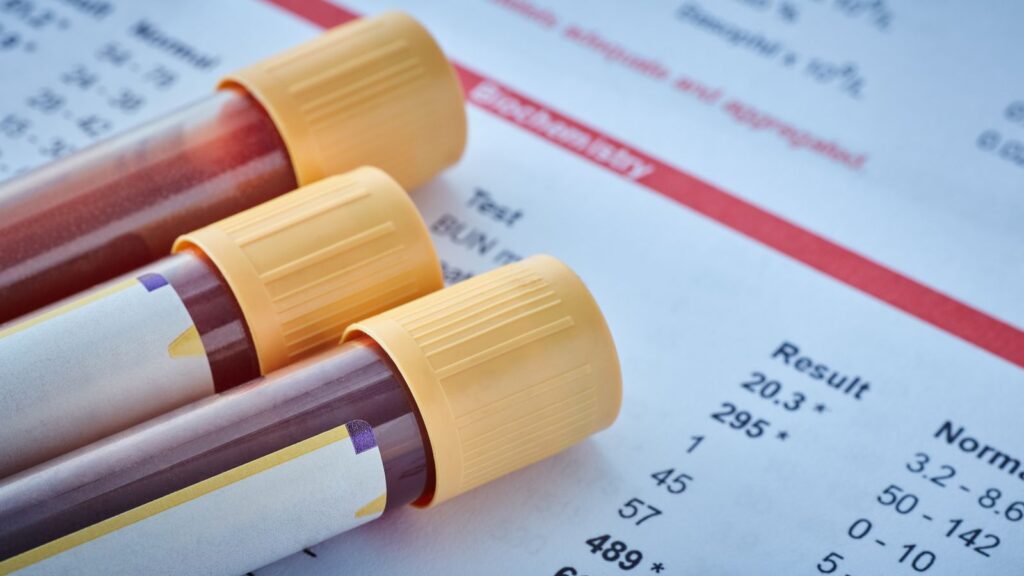
Getting hit with sadness after good sex feels backwards. You’d think feeling great during intimacy would lead to feeling great afterward, but that’s not how it works for everyone. Tons of people end up crying or getting anxious right after sexual encounters, even when everything went perfectly.
This reaction has a medical name: postcoital dysphoria. It’s way more common than most folks realize. Studies show about 46% of women and 41% of men deal with this at some point, but hardly anyone talks about it. The whole thing stays hidden because admitting you feel terrible after sex sounds weird.
Until recently, doctors didn’t know what to make of patients who complained about post-sex emotional crashes. Many people got told their feelings were psychological or relationship-related. Now we understand there’s real brain chemistry behind why some people’s moods tank after intimate moments.
Figuring out if you have this condition takes more than just wondering if you sometimes feel sad after sex. A proper postcoital dysphoria test looks at specific patterns, timing, and symptoms that separate this medical condition from normal emotional responses.
The challenge is that postcoital dysphoria can look like other problems. Depression, anxiety, and relationship issues all cause emotional distress. But this condition has unique features that help medical professionals tell the difference.
Recognizing the Symptoms
Postcoital dysphoria symptoms hit fast and without warning. We’re talking about sudden emotional shifts that happen within minutes of sexual activity ending. One moment you’re feeling satisfied and connected, the next you’re dealing with intense sadness or anxiety that makes no sense.
The emotions feel completely wrong for the situation. Someone might have amazing sex with a partner they adore, climax easily, and feel physically satisfied. Then wham – overwhelming sadness or panic strikes like lightning. This disconnect between great sexual experiences and awful emotional responses is what makes the condition so confusing.
These emotional episodes last much longer than typical post-sex feelings. Normal emotional responses after intimacy might hang around for a few minutes before disappearing. With postcoital dysphoria, negative feelings can persist for hours or days. Some folks report feeling emotionally messed up for a whole week after one episode.
Physical symptoms often show up alongside the emotional stuff. Headaches are super common immediately following episodes. Some people get nauseated, feel totally exhausted, or develop muscle tension that sticks around for hours. Others describe flu-like symptoms without actually being sick.
The intensity sets this condition apart from regular mood changes. This isn’t about feeling slightly down or tired after sex. People with postcoital dysphoria describe emotional waves that feel overwhelming and uncontrollable. The feelings are strong enough to mess with daily activities or create relationship problems.
Key Warning Signs:
- Sudden emotional crashes within 10-15 minutes after sexual activity ends
- Intense sadness, anxiety, or panic that seems unrelated to the sexual experience
- Crying episodes or emotional breakdowns occurring specifically after intimacy
- Negative feelings lasting multiple hours or days instead of fading quickly
- Physical symptoms like headaches, nausea, or extreme fatigue following sex
- Feeling emotionally cut off from your partner right after intimate moments
Gender Differences in Symptoms
Postcoital dysphoria in women often links to hormonal changes during menstrual cycles. Many women notice symptoms get dramatically worse during certain weeks, particularly before periods when estrogen and progesterone levels fluctuate wildly.
Birth control pills affect women differently – some find hormonal contraception makes post-sex emotional crashes worse, while others discover it helps stabilize their moods. The type of hormones and dosing in different pills can make a huge difference in symptom severity.
Pregnancy brings unique challenges for women with this condition. Massive hormone shifts during pregnancy can transform mild postcoital blues into serious emotional episodes lasting days. New mothers often struggle with worsened symptoms due to postpartum hormone chaos.
Menopause creates another difficult period. As estrogen levels decline, many women become much more emotionally vulnerable after intimate moments. Sleep disruption and other menopausal symptoms can intensify post-sex emotional crashes.
Postcoital dysphoria men experience often looks different from female symptoms. Instead of obvious sadness or tears, guys might become irritable, restless, or want to leave immediately after sex. These behaviors frequently get misinterpreted as normal male responses rather than signs of a medical condition.
Male-Specific Patterns
Testosterone levels significantly influence how men experience this condition. Guys with lower testosterone or age-related hormone decline might have more frequent episodes. Stress, poor sleep, and certain medications can lower testosterone and worsen symptoms.
Cultural expectations make it tougher for men to recognize or seek help for this problem. Society teaches that men should always feel positive about sex, so experiencing sadness or anxiety afterward feels like personal failure. Many guys suffer quietly instead of getting treatment.
Male symptoms might include feeling angry or agitated after sex, immediately wanting distracting activities, or becoming unusually withdrawn. Partners often see these behaviors as rejection rather than emotional distress needing medical attention.
Professional Testing Methods
Getting an accurate postcoital dysphoria test from healthcare providers involves comprehensive evaluation beyond simple questionnaires. Good doctors examine symptom patterns, medical history, and potential triggers causing post-sexual emotional distress.
For those in metropolitan areas, consulting with a psychiatrist in New York or other major cities often provides access to specialists with more experience in sexual health disorders.
Assessment typically begins with detailed questions about symptom onset, frequency, and severity. Healthcare providers want specifics about timing – do episodes happen after all sexual activities or only certain types of intimacy? Do symptoms worsen during particular times of the month or year?
Medical history plays a crucial role in proper diagnosis. Doctors ask about trauma history, current mental health conditions, medications, and family history of mood disorders. These factors can influence how brains process the intense neurochemical changes occurring during sexual activity.
Hormone testing often becomes part of the evaluation. Blood work can reveal imbalances in testosterone, estrogen, progesterone, or thyroid hormones contributing to post-sexual emotional instability. Some providers check cortisol levels since chronic stress affects hormone production.
Symptom tracking usually gets assigned as homework. Patients maintain detailed logs for several weeks, recording dates, times, symptom intensity, and potential triggers. This data helps doctors identify patterns not obvious during single office visits.
Some specialists use standardized psychological assessments designed for sexual health issues. These tools help measure symptom severity and track treatment progress over time.
Self-Assessment Strategies
While professional evaluation beats self-diagnosis, people can do basic screening to determine if they need medical help. A simple postcoital dysphoria test starts with honest reflection about emotional patterns following sexual activity.
Frequency is the first factor to examine. Everyone experiences occasional mood changes after sex – that’s normal. But if negative emotions consistently appear after most intimate encounters for months, something more serious might be happening.
Timing provides crucial clues. Postcoital dysphoria symptoms emerge within minutes of sexual activity ending, not hours later during unrelated stress. The connection between sex and emotional distress should be immediate and clear.
Intensity helps distinguish normal responses from problematic ones. Mild sadness disappearing quickly differs greatly from overwhelming emotional distress interfering with normal functioning. Symptoms feeling disproportionate to the situation warrant professional attention.
Relationship impact offers another assessment angle. If post-sex emotional episodes cause communication problems, intimacy avoidance, or relationship satisfaction issues, professional help becomes necessary.
Self-Check Questions:
- Do negative emotions consistently appear within 15 minutes of sexual activity ending?
- Are feelings intense enough to interfere with work, sleep, or daily activities?
- Do symptoms persist for hours or days rather than resolving within an hour?
- Have these patterns continued for three months or longer despite positive sexual experiences?
- Are emotional reactions causing relationship tension or conflicts?
- Do you avoid sex because you dread feeling awful afterward?
Getting Professional Help
Deciding when to seek professional care can be challenging, but certain indicators make the choice clearer. If postcoital dysphoria episodes occur more than twice monthly or last longer than several hours, seeing a sexual health specialist becomes important.
Relationship problems signal clear need for professional intervention. When post-sex emotional crashes affect communication between partners or cause intimacy avoidance, couples benefit from working with healthcare providers understanding sexual dysfunction and related emotional issues.
Worsening symptoms over time provide another reason for professional assessment. If episodes become more frequent, intense, or long-lasting, medical intervention might be necessary. Early treatment typically produces better outcomes than waiting until symptoms become severe.
Finding appropriate healthcare providers makes enormous difference in treatment effectiveness. Mental health professionals specializing in sexual health are usually best equipped for thorough assessments and appropriate treatment planning.
Primary care doctors can be starting points, but many lack sufficient sexual health training to properly evaluate postcoital dysphoria. Referrals to specialists understanding connections between physical health, mental wellness, and sexual function usually lead to better outcomes and faster improvement.












